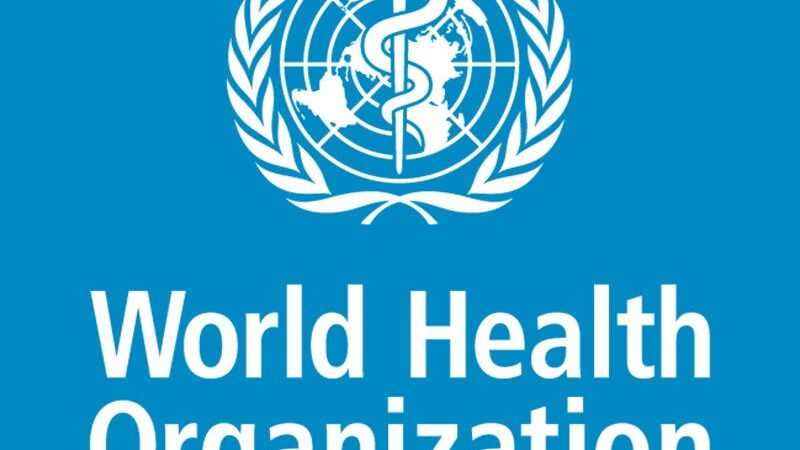
JOB DESCRIPTION
QUALIFICATIONS
Background
Purpose of the Position
In the context of the MOH Health Emergencies incident management system, the incumbent will
support the district response, coordinate and implement technical activities directed towards public health readiness and response. Specifically, the incumbent will be responsible for the oversight of cholera Infection Prevention and Control activities within the district (s) allocated with leadership of the WHO field coordinator of the district (s) under the supervision of the IPC team lead of the cholera response. The IPC officer will manage IPC activities to ensure alignment with the WHO recommended standards for IPC, monitor and ensure accountability of the implementation of WHO IPC program activities throughout the cycle of incident management.
Deliverables
Reporting to the Team lead, Incident Manager, the WHO Head of Country Office, respective Regional Office and HQ, the incumbent will work in close collaboration with relevant technical officers at the national level and subnational levels to and in liaison with other relevant units within the Ministry of Health (MoH):
1. Work in coordination with the incident management system team (IMST) to ensure IPC priorities and activities are managed effectively within the overall outbreaks and/or health emergency preparedness, response and recovery activities, in compliance with the national standard operating procedures and the WHO IPC guidelines.
2. Assess IPC capacities and practices in CTCs, hospitals and health care facilities. Identify action plans and priorities for improvement and prepare a written report according to WHO templates in collaboration with local government authorities and partners. Provide technical recommendations to partners and key players to achieve improvement actions and monitor implementation particularly in light of the cholera outbreak.
Advertisement
3. According to local needs and requests in different districts, review the IPC measures implemented and advise on prevention of healthcare-associated infections in healthcare settings including investigating HCW cholera infections and immediately recommend measures for improvement of IPC.
4. Working together with the district(s) IPC coordinator(s), assess training needs, develop training plans and conduct IPC training for staff at district health office, and health facilities using WHO adapted training materials.
5. Working with the district Environmental Health Officer(s) conduct periodic (weekly) water quality testing for hot spot and high-risk areas for cholera and provide immediate recommendations for improvement.
6. Oversee the periodic (weekly) reporting on IPC performance of different CTC/CTUs and ORPs in the district(s) by the IPC focal persons of the respective CTCs/CTUs using the adapted weekly IPC checklist.
7. Keep records and contacts of all IPC focal persons of the different CTCs/CTCUs and ORPs, understand schedules of different IPC activities by each CTC/CTU in the district(s) and monitor closely to make sure these are implemented in a timely manner and provide written reports for progress.
8. Provide periodic written reports to WHO at all levels within the country and the district IMST
9. Perform any other related incident specific duties as required by the functional supervisor.
10. Prepare and submit End of Assignment Report and Financial Report.
Qualifications, experience, skills, and languages
Qualifications
Essential: First level university degree in nursing, medicine, environmental health, pharmacy, microbiology, epidemiology or related field..
Desirable: Master’s level degree in public health or related field from a recognized university.
Advertisement
Experience
Essential:At least 1 year of experience implementing infection and prevention control policies, procedures and tools in low resource settings, and outbreaks and or health emergency response.
Related experience in managing resources and working effectively in a multi-stakeholder international environment including developing and promoting collaborative actions with national and district authorities..
Desirable: Prior working experience at field level with MoH, WHO, other UN agencies,
health cluster partners, NGOs or recognized humanitarian organizations with expertise in disaster and outbreak response.
Use of Language skills:
Essential: Excellent knowledge of English
Desirable: Knowledge of the local language(s)
Other Skills (e.g. IT):
· Excellent knowledge of Microsoft Office applications.
· Working knowledge of online data collection applications, statistical analysis packages (Stata, SPSS, etc).
Functional Skills/Knowledge
- Training, supportive supervision, mentorship and coaching skills are very vital for this task. Additionally, the incumbent should have good writing skills to enable extensive reporting and good coordination and communication skills as the work involves working with multiple partners and government.
- Demonstrated knowledge of public health fieldwork and CTU/CTCs
- Good interpersonal, oral, and written communication skills with fluency in oral and written English
- Good negotiation and diplomatic skills and ability to work in multi-cultural settings and culturally sensitive communities.
- Energetic and able to work and live in insecure and hardship conditions in the field
- Time management and ability to prioritize multiple tasks
- A self-motivated person able to work without close supervision
- Able to work effectively in a diverse team environment
WHO Competencies
Teamwork
Respecting and promoting individual and cultural differences
Communication
Building and promoting partnerships across the organization and beyond
Producing results
Additional information
- WHO has zero-tolerance towards sexual exploitation and abuse (SEA), sexual harassment and other types of abusive conduct (i.e., discrimination, abuse of authority and harassment). All members of the WHO workforce have a role to play in promoting a safe and respectful workplace and should report to WHO any actual or suspected cases of SEA, sexual harassment and other types of abusive conduct. To ensure that individuals with a substantiated history of SEA, sexual harassment or other types of abusive conduct are not hired by the Organization, WHO will conduct a background verification of final candidates.
- WHO has a smoke-free environment and does not recruit smokers or users of any form of tobacco.